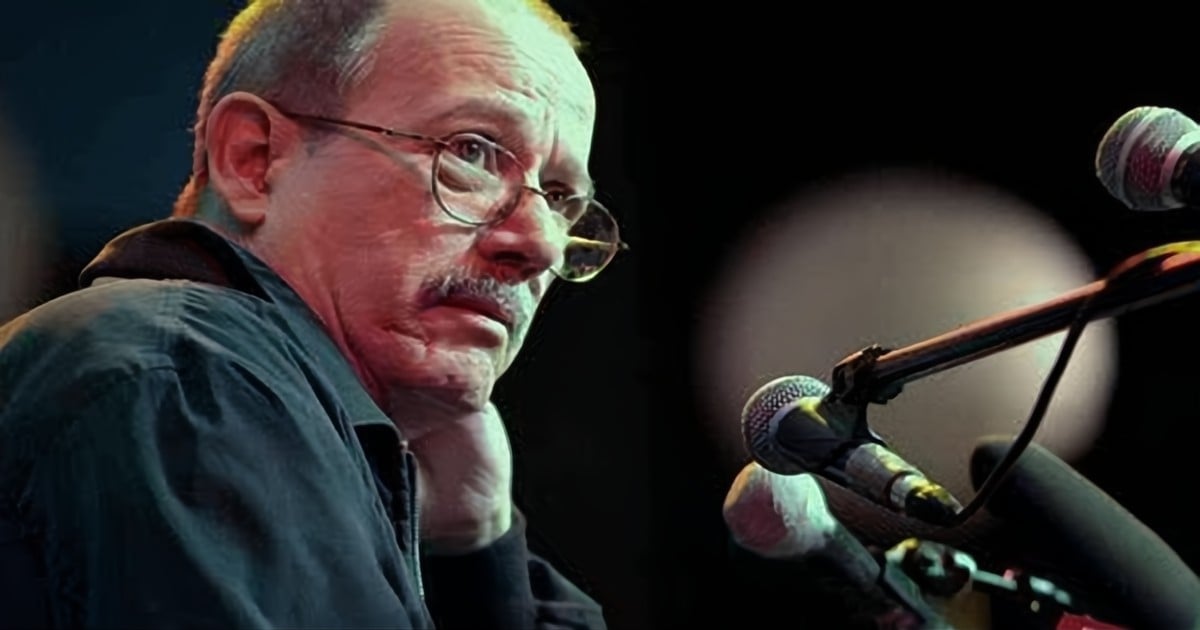The renowned Cuban singer-songwriter Silvio Rodríguez has voiced his dissatisfaction with the government's management of the crisis stemming from ETECSA's internet access restrictions. He declared, "Nobody believes that anymore," referring to the outdated methods that still dominate decision-making in the country. "For me, what has happened, and continues to happen, is an increasingly painful testimony that we are living in different times; times that shake us and loudly remind us of the need to prioritize the people's well-being," the troubadour wrote on June 3 in his blog, Segunda Cita, within an entry titled "Cuba Linda."
Rodríguez, who has long been a public supporter of the Cuban regime, added, "We are weighed down by methods borrowed from other historical moments, from different realities. Nobody believes in that anymore. Even Fidel said it: that our model no longer serves us." The musician stressed that, despite the economic turmoil Cuba is facing, the country possesses scientists and specialists capable of providing solutions. He urged the authorities to listen, engage in dialogue, and have more public discussions.
Support for University Protests
Silvio Rodríguez has also been active on social media concerning the demands of University of Havana students to change ETECSA's new tariffs, which prioritize foreign currency offers, thereby limiting internet access for more than half of Cubans. The troubadour shared the official statement from the FEU and the UJC of CUJAE, accompanied by a message: "This is the FEU of Julio Antonio Mella, Raúl Roa, José Antonio Echeverría, Fidel Castro, Alfredo Guevara."
Universities across the island have joined the indefinite academic strike. The Communist Party of Cuba and the government have responded with their usual strategy of delegitimizing the protest. The Secretary of Organization of the PCC, Roberto Morales Ojeda, accused it of being a "destabilizing maneuver" orchestrated by "enemies of the system."
Generational and Ideological Divide
The conflict has highlighted a clear generational and ideological divide within Cuban universities. While the official discourse focuses on external accusations and institutional control, students are demanding dialogue, social justice, and genuine participation. The national leadership of the FEU and UJC has intensified its rhetoric against students protesting ETECSA, leading to young people's disapproval and calls for the resignation of the FEU president.
ETECSA announced palliative measures such as a 6 GB package for 360 CUP and free access to educational sites, but students find these solutions inadequate, demanding equitable internet access for the entire population. The university strike continues to gain momentum, marking perhaps the most significant student protest in Cuba in decades. It challenges the institutional structures and the regime's narrative on the island.
Frequently Asked Questions about ETECSA Crisis and Protests
What sparked the university protests in Cuba?
The university protests in Cuba were sparked by the new tariffs imposed by ETECSA, which prioritize offers in foreign currency, limiting internet access for a significant portion of the population.
How has the Cuban government responded to the protests?
The Cuban government has responded by delegitimizing the protests, labeling them as destabilizing maneuvers promoted by enemies of the system and maintaining its institutional control.
What solutions has ETECSA offered to the internet crisis?
ETECSA has offered palliative measures, including a 6 GB package for 360 CUP and free access to educational websites, but these have been deemed insufficient by the student protesters.
